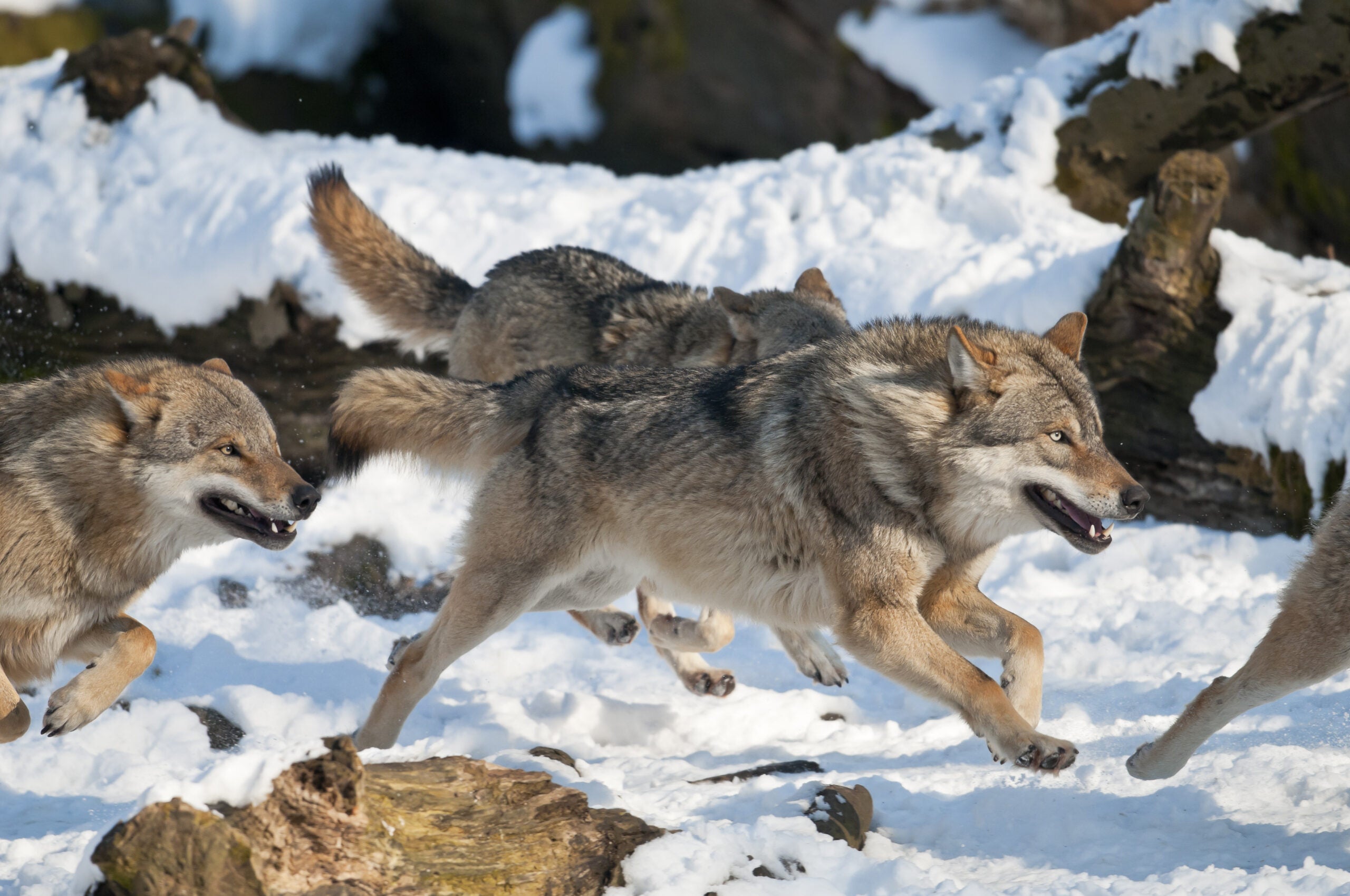The Wolf: Man’s Best, and Oldest, Friend
New research has found that our relationship with wolves may go back further than previously thought—and could have been the impetus that allowed the first humans to spread across the world.

This page was published 10 years ago. Find the latest on Earthjustice’s work.
The sound of a wolf’s howl, as portrayed in today’s media, can send shivers down a person’s spine. However, new research finds that early humans living in a dangerous world filled with mammoths, rhinos, hyenas and lions may have found a wolf’s howl to be a comforting sound that reminded them they had a friend and ally nearby.
We know that dog breeds today evolved from domesticated wolves. However, new research by Dr. Pat Shipman of Pennsylvania State University shows that dogs may have been man’s best friend a lot earlier than previously thought. In her recently published book, The Invaders: How Humans and Their Dogs Drove Neanderthals to Extinction, Shipman provides evidence that wolves and humans worked together to survive, and that partnership possibly led to the extinction of the Neanderthals, our biggest evolutionary rival.
These “first-generation” dogs aided the first humans in hunting by harassing large animals until they tired, then allowing humans to come in for the kill. This arrangement worked for both the humans and the dogs: humans did not have to exert extra energy tracking their prey and the dogs were fed without having to actually make the kill.
While scientists have always known of this relationship between humans and dogs, what’s new about Shipman’s findings is the timeline. Previous scientific evidence had shown that domestication occurred around the time agriculture started, about 10,000 to 15,000 years ago. In her new book, Shipman makes the argument (based on recent fossil findings) that the domestication of wolves began much earlier, approximately 33,000 years ago.
These findings show that the relationship between humans and wolves goes far back into our history and, as Shipman argues, could have been the impetus that allowed early man to spread its population across the world. With all that we owe wolves in our evolutionary history, mankind has largely turned its back on wolves today.
After centuries of hunting, trapping and poisoning wolves to the brink of extinction, we realized the err in our ways and offered protections under the Endangered Species Act in 1973. These protections have allowed wolves to increase their numbers in the northern Rocky Mountains and the upper Midwest. But wolves are still missing from the majority of their former range in the continental U.S., including places like the southern Rocky Mountains, northern California and the Northeast, where suitable wolf habitat exists. Now, members of Congress want to roll back hard-fought Endangered Species Act protections for wolves, effectively extinguishing any chance for wolves to recover in additional parts of the U.S., and subjecting wolves to increasingly hostile wolf management practices where they currently exist.
In honor of our Beagles, German Shepherds, and all other dog breeds that we know and love today, let’s re-ignite our friendship with their great-great-grandparents, the wolf. Tell Congress that wolves need federal protections to give them a fighting chance at survival and recovery. Hopefully the more people who know about our historic bond with wolves, the more people will once again hear a wolf howl and feel a sense of kinship, rather than fear.
Established in 1989, Earthjustice's Policy & Legislation team works with champions in Congress to craft legislation that supports and extends our legal gains.